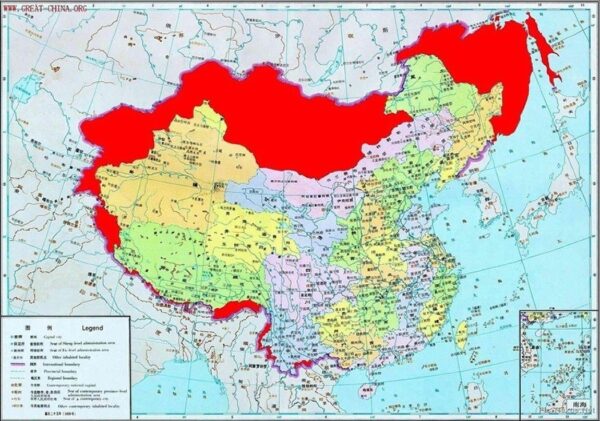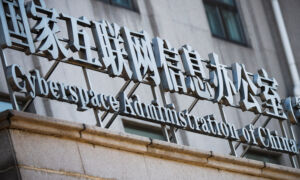The Chinese communist regime’s Cyberspace Administration (CAC) has begun a two-month “purge” to strictly control the dissemination of information on China’s internet and to increase the censorship of online citizen journalists, which has caused an uproar online.
A popular Chinese social media influencer fell victim to the newly tightened censorship rules on March 15.
In its “Notice on Carrying out the Special Action of ‘Purging and Rectifying Citizen Journalism Chaos,’” the CAC announced on March 12 that it will strengthen the control and management of the “whole process and whole chain” of online information.
The notice stated that the cyberspace administration would devote funding to strengthen the online supervision of so-called citizen journalism. It would also focus on policing “social-networking, short-video, webcasting, and other types of online platforms,” and “resolutely crack down on and strictly punish violators.”
The Chinese regime will enhance cooperation with the police and strengthen online censorship in the areas of account registration, operation, and the shutting down of citizen journalists’ accounts.
The notice sparked heated discussions among netizens. Twitter user @wu_inoue wrote, “The CCP has started to crack down on social media influencers now!”
Another, “Gudong Baby,” wrote, “Where are the media that let the common people speak out?”
Influencer Banned From All Chinese Platforms
The accounts of Chinese social media influencer Zhou Libo were suspended across all major Chinese platforms on March 15, including his Sina Weibo account, with 34.65 million followers, and his Toutiao account, with 2.93 million followers.
Chinese media reported that the direct reason for the ban was an anti-Russian post he published on March 12:
“’Putin the Great!’ ‘Warrior nation!’ Why are there always some Chinese who use these grandiose words to describe Russia? Is it because Russia (i.e., the Soviet Union) bullied us?! Is it because they occupied 5 million square kilometers (1.93 million square miles) of greater Chinese territory and have not returned it?! They have weakened! Do you still worship them? Being friendly with them is okay, but enough with the grovelling.”
The post also included a pre-1949 map of the Republic of China, which is considerably larger than today’s communist People’s Republic of China. Zhou wrote next to the map: “Remember this map! China’s territory will eventually return to its original! That is the great rejuvenation of the Chinese nation!”

Despite the patriotic tone of Zhou’s post, he was censored because it wasn’t in line with the Chinese communist regime’s rhetoric, U.S.-based China affairs commentator Qin Peng told NTD.
“In the long-term propaganda of the Chinese Communist Party (CCP), there has never been a distinction between the party and the country,” Qin said. “Loving the party and the country must be unconditional. You can only love the one party [CCP], and hate the people or countries that the party wants you to hate.”
Qin said Zhou’s silencing on all Chinese social media platforms shows that the order banning him must have been the result of a high-level order from the Cyberspace Administration of China, rather than a decision made by an internal administrator of a single website.
While the CCP has successfully turned China’s internet into the world’s largest intranet through censorship and control, it’s impossible to completely silence the common people, U.S.-based current affairs commentator and Epoch Times contributor Wang He said on March 15.
“Now the public is full of grievances, including people within the CCP’s system, and all kinds of inside information are being revealed to the public one after another,” Wang said. That information is largely about “policies, economic situations, major disasters, key social events, etc.” that affect the interests of the general public.
“These have become hot topics with hundreds of millions, or even billions of hits on the internet, which created a lot of public opinion-based pressure on the regime.
“This time, the CCP focused on clamping down on the citizen journalists because it felt scared, so it instinctively stepped up its crackdown,” Wang said. “Its entire thinking and policies are aggressive and rigid. What will be the final result?
“Like all tyrants in history, they will be overthrown by the people.”

